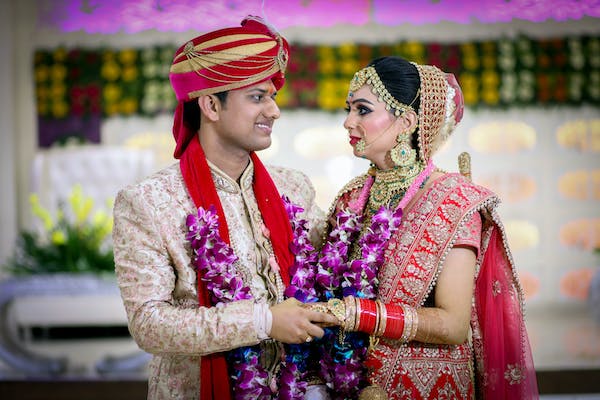Prioritizing Mental Health in Your Marriage Media Journey

Prioritizing mental health within your marriage media journey is foundational to fostering a healthy and sustainable relationship. Amidst the excitement of finding a life partner, acknowledging and addressing mental health is paramount. Understanding each other’s mental well-being, recognizing red flags, and establishing open communication are crucial steps. It involves creating a supportive atmosphere where discussions about mental health are normalized and met with empathy. Engaging in self-care practices, both individually and as a couple, strengthens the foundation of the relationship. Seeking professional support if needed signifies strength and dedication to a healthy partnership. Balancing expectations with the reality of mental health challenges is vital. By embracing these considerations, couples can navigate their marriage media journey with resilience, ensuring that mental wellness remains a priority, setting the stage for a fulfilling and supportive relationship.
Understanding Mental Health in Relationships
Understanding mental health’s impact on relationships is foundational in nurturing a successful partnership. Mental health significantly influences the dynamics between individuals, affecting communication, empathy, and overall relationship quality. Addressing mental health early in a marriage media search sets the stage for a healthier journey.
Couples may encounter various challenges such as navigating differing coping mechanisms, managing stress during the matchmaking process, or dealing with past emotional traumas that can affect their present decisions. Recognizing these challenges and openly discussing them fosters a deeper understanding between partners.
It encourages empathy and patience, enabling couples to support each other effectively. By acknowledging and addressing mental health concerns from the outset, couples lay a strong foundation for a relationship built on mutual respect, understanding, and a commitment to prioritizing each other’s well-being throughout their journey together.


Red Flags and Coping Strategies

During the matchmaking process, recognizing red flags that hint at underlying mental health issues is crucial. Indicators like persistent mood swings, extreme anxieties, or withdrawal tendencies can signify deeper concerns. Identifying these flags sensitively is vital to maintaining a supportive atmosphere. Couples should approach discussions with empathy and openness, allowing for a safe space to address concerns. Employing active listening skills and non-judgmental communication fosters trust and understanding.
Coping strategies play a pivotal role in navigating mental health discussions delicately. Encouraging an environment where both partners feel comfortable expressing their feelings is essential. Mutual respect and patience are foundational, ensuring that discussions don’t exacerbate existing stressors. Additionally, promoting self-care practices, such as mindfulness or seeking professional guidance together, helps in managing these challenges effectively. By acknowledging red flags with empathy and employing healthy coping mechanisms and communication, couples can navigate potential mental health concerns with grace, fortifying their relationship through mutual support and understanding.


Building a Supportive Environment
In the intricate dance of marriage, finding harmony between personal and shared interests is a delicate yet essential art. It’s the synergy of individual passions and shared hobbies that adds a unique vibrancy to a relationship.
Couples often have distinct interests and hobbies that make them who they are. These personal passions are the colors that paint the canvas of their individuality. However, striking a balance between nurturing these individual interests and cultivating shared hobbies is where the magic happens.
Moreover, we will delve into a rich array of examples of activities and hobbies that couples can explore together. Whether it’s embarking on outdoor adventures like hiking and cycling, or diving into creative realms through painting or dancing, shared hobbies provide opportunities for bonding and creating lasting memories.
By achieving this balance, couples can celebrate their individuality while reinforcing their connection, resulting in a harmonious marriage filled with both personal growth and shared experiences.
Self-Care Practices for Individuals and Couples

Self-care practices are pivotal during the marriage media journey, offering individuals and couples tools to nurture their mental wellness. Mindfulness exercises, such as meditation or deep breathing, empower partners to stay present, reducing stress and enhancing emotional resilience. Implementing stress management techniques like journaling, physical exercise, or engaging in hobbies provides a healthy outlet for emotional release and rejuvenation. Prioritizing mental wellness involves setting boundaries, allocating time for relaxation, and respecting personal needs.
For couples, shared self-care rituals, like taking walks together, practicing gratitude, or engaging in mutual hobbies, foster connection and understanding. Communication around each other’s self-care routines allows for mutual support and encourages an environment where both partners prioritize their mental health.
Acknowledging the importance of downtime and incorporating moments for self-reflection within the marriage media journey helps individuals and couples recharge. By integrating these practices into their lives, couples fortify their emotional well-being, ensuring they embark on their journey together with resilience, self-awareness, and a shared commitment to mental wellness.
Seeking Professional Help

Seeking professional help is a pivotal step when mental health concerns arise within a relationship. Professional guidance offers specialized insights, tools, and support tailored to address individual and couple-specific challenges. It fosters a safe space where partners can explore their emotions, concerns, and communication patterns with a trained expert. This facilitates a deeper understanding of underlying issues and equips couples with effective strategies to navigate them.
In Bangladesh, accessing mental health support involves various avenues. Consulting licensed therapists, psychologists, or psychiatrists provides personalized care and intervention. Several organizations and clinics across the country offer counseling services, and online platforms may also provide accessible mental health resources.
Community-based mental health initiatives, local support groups, and helplines serve as valuable resources for immediate guidance and assistance. Government mental health facilities or university clinics often offer counseling services as well. It’s crucial to research and choose reputable professionals or organizations that align with specific needs and cultural contexts.
By advocating for professional help when needed, couples prioritize their mental well-being, demonstrating resilience and commitment to fostering a healthy and thriving relationship.



Balancing Expectations and Realities
Expectations often shape the narrative of a marriage media journey, influencing the search for an ideal partner. However, acknowledging the role of mental health within these expectations is crucial. Balancing the aspirations of finding a life partner with the realities of mental health involves navigating with empathy and understanding.
Realistic expectations revolve around acknowledging that mental health challenges are a natural part of life. Understanding that everyone carries their own emotional baggage and complexities allows for empathy toward potential partners. Emphasizing open communication about expectations and mental health concerns enables couples to approach their journey with authenticity and understanding.
It’s essential to recognize that mental health issues may not fit conventional ideals, and that’s okay. Encouraging acceptance and providing support, regardless of these challenges, fosters a relationship built on compassion and resilience. By embracing realistic expectations while prioritizing mental well-being, couples navigate their marriage media journey with grace, creating a foundation rooted in understanding and acceptance of each other’s complexities.
Testimonials and Success Stories

Real-life testimonials of couples navigating mental health challenges within their marriage media journey serve as powerful narratives of resilience and hope. These stories showcase how couples confronted and overcame obstacles, highlighting the significance of prioritizing mental well-being in relationships.
Sharing these testimonials illuminates the journey of couples who encountered and addressed mental health challenges during their search for a life partner. They depict the struggles, vulnerabilities, and triumphs these couples experienced. These narratives emphasize the importance of open communication, empathy, and seeking professional help when needed.
Highlighting how these couples addressed mental health issues together underscores the strength found in mutual support and understanding. These stories often revolve around the power of compassionate listening, patience, and the willingness to navigate challenges as a team. They portray how these couples found happiness not despite their mental health challenges, but by acknowledging, addressing, and supporting each other through them.
These testimonials inspire hope, showcasing that with dedication, understanding, and a commitment to mental well-being, couples can build a resilient and fulfilling partnership, creating a narrative of triumph over adversity.
FAQ

Why is mental health important in the marriage media journey?
- Mental health profoundly impacts relationships. Prioritizing it ensures a strong foundation built on understanding, empathy, and resilience.
How do I address mental health concerns when looking for a partner?
- Start by fostering open communication. Discuss mental health gently, share concerns openly, and support each other through the process.
What are red flags indicating potential mental health issues in a partner during the matchmaking process?
- Red flags may include extreme mood swings, persistent anxieties, social withdrawal, or difficulties managing emotions.
How can couples support each other’s mental well-being during the marriage media journey?
- By actively listening, practicing empathy, encouraging self-care, and offering non-judgmental support, couples can strengthen their mental well-being together.
Where can I seek professional help if mental health concerns arise during the marriage media journey in Bangladesh?
- Several resources exist, including licensed therapists, psychologists, local mental health clinics, government facilities, and online counseling platforms. Seeking reputable professionals ensures tailored support.
Conclusion

The marriage media journey is enriched when mental health takes center stage. Prioritizing mental well-being throughout this journey is foundational for fostering resilient and fulfilling relationships. Open discussions and proactive approaches toward mental health within the context of seeking a life partner create a supportive atmosphere where couples can thrive.
Key takeaways underscore the significance of early recognition and open communication about mental health challenges. It’s crucial to view mental health as an integral part of relationship dynamics, addressing concerns with empathy and understanding from the outset. By creating a supportive environment that reduces stigma and promotes seeking professional help when needed, couples lay the groundwork for a healthier partnership.
Encouraging a proactive stance toward mental well-being involves integrating self-care practices, mindful communication, and mutual support into the fabric of the relationship. Embracing mental health discussions as a normal and vital aspect of the marriage media journey empowers couples to navigate challenges with grace and resilience. By nurturing mental wellness proactively, individuals and couples set the stage for a stronger, more empathetic, and enduring partnership.

